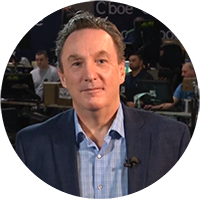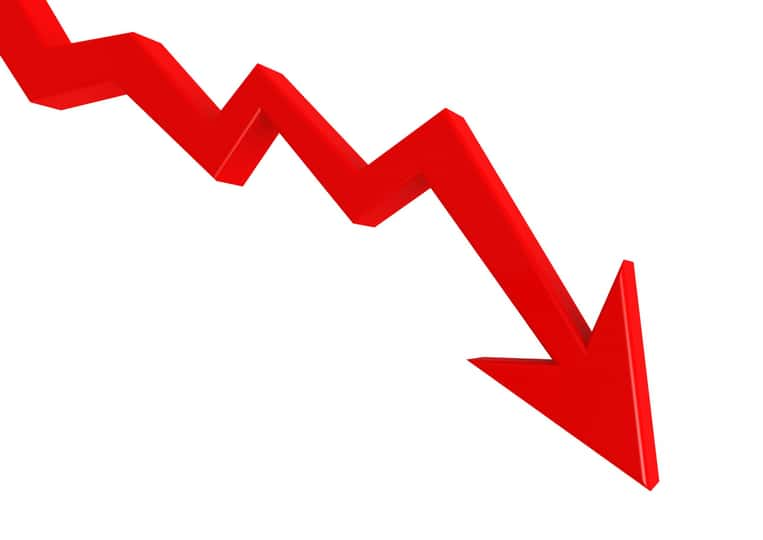Jamie Dimon, Chase’s outspoken Chief Executive Officer, is right about short sellers. While I believe short-sellers without question have a place in the marketplace (and sometimes I am even one myself), some unscrupulous short-sellers are intentionally distorting market signals in ways that have cost far too many Main Street investors significantly over the last decade. Their strategy of artificially tanking stock valuations through spreading misinformation isn’t going away, so traders are now left with a choice: wise up by picking up on their cues or do nothing and continue to be left holding the bag.
The recent campaign against Indian multinational conglomerate the Adani Group by Hindenburg Research, a U.S. investment research firm focusing on activist short selling, is telling.
In a report, Hindenburg accused the well-to-do company of “pulling the largest con in corporate history” by engaging in stock price manipulation, overinflating its assets, and operating offshore shell entities to rig its stock valuation up.
Within days of the report’s release, companies owned by the Adani Group lost more than $100 billion in value — almost half of Adani’s market value. However, a new analysis from India’s Supreme Court suggests this was all for nothing. The report’s contents may have amounted to sheer misinformation that Hindenburg seems to have been designed for no reason other than to milk hundreds of millions from retail investors’ pockets.
According to NDTV, just days ago, “a Supreme Court-appointed panel of experts examining India’s regulatory mechanism in an investigation linked to the Hindenburg allegations has given a clean chit to the Adani Group.” The experts’ committee “said there was no price manipulation on the part of the Adani Group and that the conglomerate had taken necessary steps to comfort retail investors.”
This example, while the most recent, is far from the only time that short sellers have appeared to manipulate stock prices downward for their own financial interests.
To highlight just one other — In 2012, hedge fund manager Bill Ackman publicly announced a massive, short position on Herbalife (HLF), a sizable dietary supplement company. Ackman claimed that Herbalife operated as a pyramid scheme and that its business practices were unsustainable. Stockholders initially got pounded. Ackman drove down Herbalife’s stock price from a high of $45 when the short campaign was first disclosed to less than $13. Ultimately, the stock rebounded, but how many people were caught up in the downfall.
Hindenburg Research and Bill Ackman are back at it again with an attack on famed investor Carl Icahn’s company Icahn Enterprises (IEP). Interesting to note that Carl Icahn took a long position in Herbalife stock back in 2012 and talked down Bill Ackman.
The lesson here: take information from firms focused nearly exclusively on activist short selling, which make money whenever the stock they are selling drops in price, with a grain of salt.
That’s not to say investors should never take counsel from companies like Hindenburg. After all, they often take short positions because of their perceptive forecasts of industry problems and analyses of the inherent difficulties in individual companies’ operational standards. Indeed, using POWR Ratings to find the worst companies has proven to be very successful in the long term.
However, far too often, when dealing with big companies like Adani, unscrupulous short sellers take and run with the opportunity to move billions of dollars out of Main Street investors’ pockets, and they are willing to do so at any cost, even if it means stretching the truth or releasing outright misinformation. When they are critiquing large conglomerates like this one — which otherwise doesn’t appear to have any red flags or financial difficulties— retail investors should tread carefully on accepting their counsel.
More often than not, this separates legitimate advice from an artificial campaign designed to milk Main Street by artificially pushing down stock prices, and that’s precisely what every trader should be seeing to avoid.
Shorting stocks is certainly a very viable strategy. Rather than shorting stocks outright, however, we use risk defined puts to take our bearish stance in POWR Options. This lowers the upfront cost and risk dramatically-even more important now in this market environment.
POWR Options
What To Do Next?
If you’re looking for the best options trades for today’s market, you should check out our latest presentation How to Trade Options with the POWR Ratings. Here we show you how to consistently find the top options trades, while minimizing risk.
If that appeals to you, and you want to learn more about this powerful new options strategy, then click below to get access to this timely investment presentation now:
How to Trade Options with the POWR Ratings
All the Best!
Tim Biggam
Editor, POWR Options Newslette
Want More Great Investing Ideas?
shares rose $2.28 (+0.54%) in premarket trading Tuesday. Year-to-date, has gained 10.25%, versus a % rise in the benchmark S&P 500 index during the same period.
About the Author: Tim Biggam

Tim spent 13 years as Chief Options Strategist at Man Securities in Chicago, 4 years as Lead Options Strategist at ThinkorSwim and 3 years as a Market Maker for First Options in Chicago. He makes regular appearances on Bloomberg TV and is a weekly contributor to the TD Ameritrade Network "Morning Trade Live". His overriding passion is to make the complex world of options more understandable and therefore more useful to the everyday trader. Tim is the editor of the POWR Options newsletter. Learn more about Tim's background, along with links to his most recent articles. More...






